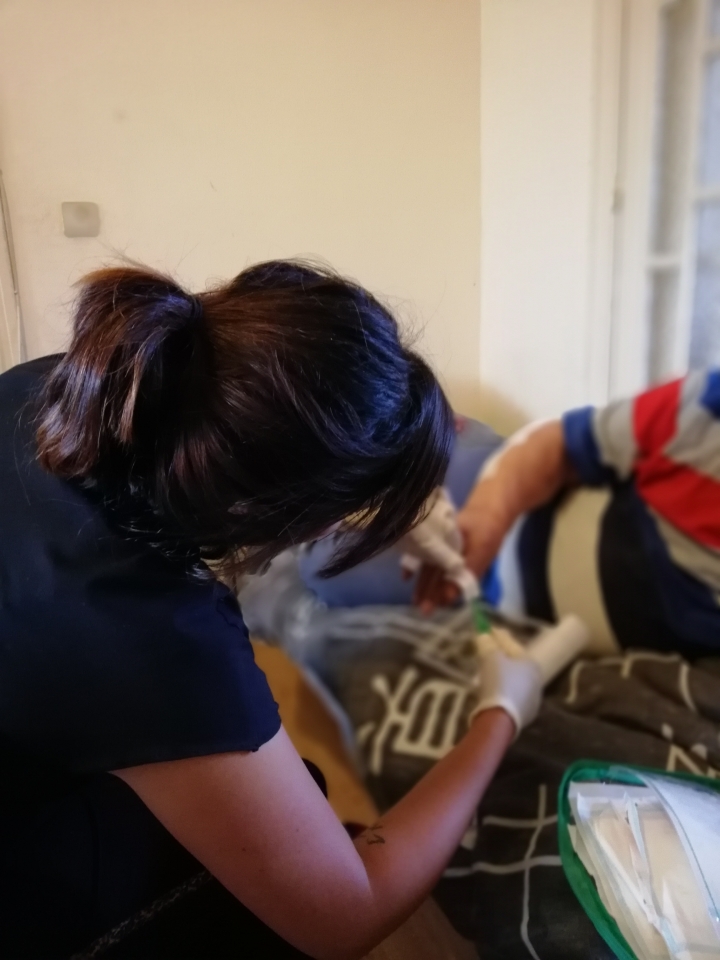
In my function as a social worker, I must of course focus on the social and administrative follow-up of our patients - but that’s not all. These people have a very tough life, but they also have a lot of resources and strength which they’re often no longer aware of. That’s why I find the idea of “pleasing oneself “very important as it strengthens a person’s well-being.
This makes me think of one of our patients, Ms J, who I’ve accompanied in her home ever since I joined Street Nurses.
She lived a long time on the street. Lengthy psychiatric treatment gave her stability and she has now been living in a home of her own for several years. We have been by her side at every stage of this development.
What struck me in the beginning was her apathy. She did indeed not like talking much, was not inclined to decorate her home and showed no particular interest in anything.
During our encounters, we finally managed to establish a bond. Our whole team then did its best to make her enjoy the small pleasures of life again: prepare a salad, go for a walk, decorate her home, buy something to replace her worn-out clothes, have a good laugh, etc.
It seems to me that Ms. J is gradually starting to enjoy herself again and is opening up to new things. By the way, we’ll shortly take her out to a garden center and, who knows, she may treat herself to a plant.
To have lost all desires, any purpose in life, every enjoyment - these are all symptoms of depression and lost self-confidence common to many of our patients.
By adapting our medical and social follow-up every day to the rhythm of our patients, we can relieve their mental pressure and increase their psychic freedom.
I am always delighted when they recover enjoyment, marvel at the small things of life and especially when they start planning for a future in which they don’t retreat in themselves anymore - but cherish dreams and projects.
As Ms. J is now permanently established in her home, my colleagues of our “My Way” team will take over her follow-up. In this way we’ll continue to support her in her striving for more well-being and equilibrium - a state which is after all different for each of us.
Without you, there's no us
(*) We make every effort to respect the privacy of our patients and our professional secrecy. Nevertheless, we want to bear witness to how they have to survive and how we work together to reintegrate them. Therefore, the names of places and people are deliberately omitted or changed and real-life situations are placed in another context. There is no direct link between the photos and the stories above.

